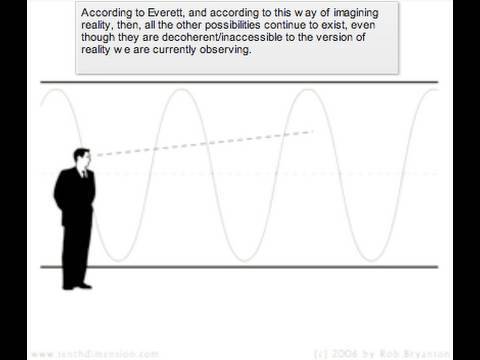Brian Burt's Blog: Work in Progress, page 6
September 19, 2015
Blood Tide - Rockin' Reviews!

![]()

![]()

When you have a new novel released (at least, when you're a relative rookie like me ;-), you anxiously await the feedback from those first few reviews. Aquarius Rising: Blood Tide has been out for about a month now, and I'm relieved to share the results of "early polling." (Guess I've been watching too much presidential campaign coverage... but how can you avoid it?)
Diane Donovan, Senior Reviewer for Midwest Book Review, published a very complimentary review in the September edition of MBR Bookwatch. Here's an excerpt:
Book Two of the 'Aquarius Rising' trilogy shows that in a truly superior trilogy, the second book may hold an ability to stand alone but ideally will be chosen after the first is digested, only because the characters, setting, and crisis so exquisitely portrayed in In the Tears of God are smoothly continued here, with such a background...
Readers should anticipate a heady combination of action and intrigue based on the events of Book One, in a post-apocalyptic setting that questions heroes, leaders, and a looming war between Mother Earth and Mother Ocean. Based in a world that's survived climate change, the impact of loneliness, life-or-death decision-making processes, and the effects of ongoing conflict illustrate the very different challenges of handling interactions between two worlds almost inhabiting the same body of Earth, making Blood Tide a top recommendation for readers who like 'climate change' dystopian stories with more than a dose of philosophical reflection paired with nonstop crisis mode style action.
That review definitely boosted my morale and energized my efforts to complete Book 3 in the trilogy. This week, Online Book Club published a glowing review of the novel as well:
This exceptional book has easily earned 4 out of 4 stars. The fast-paced story includes timeless topics such as loyalty, trust, guilt, betrayal, forgiveness, atonement, redemption, and life after death. Mr. Burt writes clearly and concisely, with first-rate grammar. He avoids the gloomy atmosphere so common in post-apocalyptic novels, and paints a remarkably vivid picture of his undersea world, which includes numerous intriguing organisms, such as sentient living reefs and vampire squids. The tension builds to a gripping climax, but the victors do not gloat afterward.
One characteristic of the finest SF, such as the Aquarius Rising novels, is that you can enjoy reading the book even if you are not a big science fiction fan. The author has a well-founded confidence in his storytelling abilities, and does not resort to sensationalism to attract readers. This book includes no profanities or explicit sex, and the violence is not excessively gory, so it is suitable for readers of all ages. This is a great book for nearly everyone.
Nice to be endorsed for being "kid-safe": frankly, I'd love to hook young adult readers. That's when I became addicted to SF myself; I'm okay with being a "speculative fiction pusher." (Hey, it's medicinal... really!)
I know there will be negative reviews as well (there always are, since reading is a very personal experience). I've steeled myself for those, and will hopefully learn valuable lessons from them that will help me refine my craft. But these two reviews will provide much-needed salve for the delicate writer ego. Thanks, MBR and OBC!
September 9, 2015
Where Does the Story End?

One of the coolest things about being published by Double Dragon has been getting to know other DDP authors. They're a very talented group, with diverse styles, genre preferences, interests, and backgrounds. Thea Landen is a fellow writer of speculative fiction whose novel The Fall of the Midnight Scorpions, sequel to Disintegration, has just been released. I'm very pleased to have her contributing a guest post on the blog today!
Hi, everyone! I’m thrilled that Mr. Burt has invited me onto his blog today, especially since we both have sequels out now from Double Dragon Publishing. I know he’s got plans to round out a trilogy; me, I’m not so sure.
When I wrote the first book in this universe, Disintegration, I hadn’t really thought about writing a sequel, even though the ending doesn’t tie everything up into a neat little bow. Writer friends/fans talked me into it, though, and I’m glad I did. A lot of work has gone into building this world, and more importantly, I love the characters. The heroine of both books, Ro, is probably my favorite out all the characters I’ve ever created, and I’m not just saying that because I’m promoting her book.
This time, that last page in The Fall of the Midnight Scorpions feels a little more finite. I’m sure I could find plenty more stories to tell in the same setting, but every time I try to come up with a plot for another full-length novel, everything feels contrived and forced. I don’t even know who the protagonist would be (since the two existing books are told from different points of view), nor do I have any really good ideas for a main conflict. I try to write every book as a standalone story so readers can jump in any time, so I do have plenty of possibilities. However, the question remains: where does the story end?
In a way, I guess it’s like having children. Mine are very young, so no permanent decisions have been made, but I’m pretty sure we’re done, and there are a million good reasons why. Still, that doesn’t mean that every now and then I don’t think “Well, what if….” But it’s important to know when to move forward, especially when there are so many new, different, exciting things you could be doing instead. (See, that last line can apply to both situations! Everyone always says your books are like your children, right?)
So my gut feeling tells me this story has come to a close. If I get the itch to revisit the universe, I suppose I could always put out another collection of free short stories (like I did with Disintegration: The Prequels), but the list of other tales I want to tell is already a mile long. All my characters here are in the places I want them to be, and I think that The Fall of the Midnight Scorpions provides a satisfying conclusion.
But just you watch. Now that I’ve written down these feelings about the decisions I’ve made, I’ll be back in about two years with another kid and a third related novel coming out.
About Thea Landen:

Thea Landen lives in New York with her husband and two children. A former educator, she strives to encourage creativity and passion in all those around her, and uses writing to help inspire. Though she reads and writes in nearly all genres, she has a special fondness for science fiction, fantasy, and adventure and anything that pushes the imagination beyond its usual limits. When she’s not writing, or thinking about writing, her hands and mind are occupied by either yarn crafts or role-playing games.
You can visit Thea at her website, www.thealanden.com, to learn more about her novels and short fiction. The Fall of the Midnight Scorpions can be purchased from Amazon, Kobo, iTunes, and Barnes and Noble.
#SFWApro
August 15, 2015
Blood Tide Released!

I'm thrilled to announce that the second novel in the Aquarius Rising trilogy, Aquarius Rising: Blood Tide, has been released by Double Dragon Publishing. This continues the cli-fi saga begun with Aquarius Rising: In the Tears of God, winner of the 2014 EPIC eBook Award for Science Fiction. In a nutshell:
Megalops is an Aquarian from one of the many reef-cities that thrive beneath the waves on an Earth transformed by climate change. Humans clinging to the barren lands blame Aquarius for their plight and unleashed the Medusa Plague that entombed Megalops's wife and daughter in stone. Tormented by that loss, Megalops swears to avenge his murdered family by unleashing a Vendetta Virus as cruel and lethal as Medusa. Ocypode the Atavism and his allies battle desperate odds to prevent Megalops from igniting global conflict. War demands sacrifice. If Mother Earth and Mother Ocean wage war against each other, will anyone survive?
I greatly enjoyed writing this and hope that comes through in the reading. I took a very different approach with this novel: Book 1 was pretty rigorously (okay, anally) plotted and planned in excruciating detail up-front; Book 2 was more loosely pre-planned so that the action could flow more organically in the direction dictated by the main characters. The story ultimately took a few twists I never envisioned at the start.
If you're interested in learning more, the publisher's book page for Blood Tide can be viewed here:
Blood Tide - Book Two Of The Aquarius Rising Trilogy
If you're a fan of climate fiction, or just good ol' science fiction, please check it out! (And if you're inclined to spread the word, I won't try to talk you out it... ;-)
#SFWApro
July 26, 2015
Of Audiobooks and Heroes Who Smash Stereotypes

First, a confession: I'm hooked on eBooks and audiobooks. In particular, being able to take a long walk while listening to an audiobook from a favorite SF or fantasy author as the scenery unfolds, both in the real world and the imaginary one, is a wondrous gift of mobile technology. (And with audiobooks, you can keep your eyes open for oncoming vehicles; Stephen King has taught me many valuable lessons about writing, and about reading a paper book while walking along country roads as well!)
So since our local library is hooked into the Adobe Overdrive Digital Library network, my wife and I can check out eBooks or audiobooks at zero cost, enjoy them, and return them for other patrons to savor in turn. I can browse the virtual bookshelves, pick something intriguing, and have it downloaded to my iPhone in a couple of minutes. If your library offers this online service, I strongly recommend you take advantage of it!
Lois McMaster Bujold has always been on my to-read list of acclaimed SF authors. When I discovered that four of her Vorkosigan Saga novels were available in audiobook form from our digital library, I was psyched. I gobbled them up, one after another: Shards of Honor, Barrayar, Ethan of Athos, and Memory. While hiking through the woods of Southwest Michigan, I also got to explore the exotic worlds of Barrayar and Beta Colony and Athos. The novels didn't disappoint! Clearly, Bujold deserves the many accolades she's received over the years. One common thread in these four novels really struck me, though.
Ms. Bujold has done a masterful job of populating her novels with compelling, complex, and fully realized protagonists who completely defy the stereotypes for SF / fantasy heroes. She does this effortlessly and elegantly, without pushing any political agenda in the face of her readers, and she began doing so long before it became "politically correct" or "cool."
Shards of Honor and Barrayar feature Cordelia Naismith, a female protagonist who blends traditional feminine characteristics - including far less "emotional constipation" than the classic male hero as well as fierce maternal instincts that drive her to ignore her own welfare to protect her unborn child - with the calm under fire and brilliant strategic thinking normally ascribed to the "muscular alpha male wielding the laser or the sword." Another aspect of this character and these novels that I loved: Cordelia has a profound connection with her lover and eventual husband, Aral Vorkosigan. Both are strong-willed, honorable, and independent characters who cherish the virtues of their partner. They respect, value, and draw strength from each other without either one struggling to dominate the relationship. They are the quintessential SF marriage of equals who set a fictional standard to which we married folks can all aspire.
In Ethan of Athos, the unassuming protagonist is a gay man from a planet where women are banned and, in fact, regarded with suspicion mixed with superstitious fear born of ignorance. Dr. Ethan Urquhart is forced to venture out into the "barbaric realm" of mixed-sex society to secure new ovarian tissue cultures essential to the survival of his world. In the process, he forms a grudging alliance with a mysterious female mercenary named Elli Quinn who turns all of his preconceptions about women on their head. She helps him navigate a web of interplanetary intrigue beyond his imagining; by combining forces, they manage to unravel the intricate plot that threatens to destroy them both. Bujold published this novel depicting an entire planet committed to a homosexual lifestyle in 1986, long before the tide of public opinion turned.
The novel Memory features Miles Vorkosigan as protagonist, the son of Cordelia Naismith who suffered serious birth defects due to an enemy's attempt to poison his parents. As a result of the prenatal poisoning, Miles is diminutive, plagued by a variety of physical afflictions, a far cry from the "tall, dark, and handsome" leading man so common in genre fiction. The physical ailments have left deep emotional scars as well in a society (the Vor warrior caste on planet Barrayar) where such children are ridiculed as "mutants" and marginalized, denied the opportunity to rise to the upper echelons. Miles uses determination, intelligence, and shrewd insight into human nature to solve a baffling crime that masks a dangerous act of treason.
The "atypical" nature of these protagonists is by no means the point of Bujold's novels. It's just a refreshing element that is woven seamlessly into stories which enlighten as well as entertain. I'm very grateful for the chance to download these four excellent audiobooks with my library card. I'm a Michigander, and Ms. Bujold is a Buckeye, so this is hard to admit... but her novels are brilliant, and I'll be looking to explore more of her fictional worlds in the near future!
#SFWApro
June 30, 2015
Words with Wings

Like millions of others, I first read Richard Bach's classic Jonathan Livingston Seagull in my youth and found it profoundly wise in a simple, almost elemental way. Soon after, I came across Illusions: The Adventures of a Reluctant Messiah and found its core philosophy equally compelling. (Heck, it features an incognito messiah who hails from Fort Wayne, IN; as a Fort Wayne kid, how could I not be drawn in by that? ;-) In the novel, Donald Shimoda imparts his wisdom to Bach (who serves as both author / "chronicler" and disciple), revealing the illusory nature of what most of us accept as "reality" and training "Bach the character" to exert control over his life, to shape his own reality. It's an appealing world view, communicated in simple prose with oft-quoted, memorable passages.
Both of those novels left a strong impression on my younger self. So, when my wife brought home Running from Safety: An Adventure of the Spirit from our local library book sale, I was excited to see what else Mr. Bach had to teach.
Time, and age (which this novel would scoldingly remind me are leaving their mark only because I foolishly accept the false narrative of mortality) have made me more jaded and less in touch with my youthful sense of wonder, evidently. This book did not move me in the way Bach's earlier works did. I suspect this may say more about me than about the author.
Now that I'm writing fiction myself, Bach's habit of overtly inserting himself into his novels as a (or the) central character strikes me as intrusive, jarring, and a bit narcissistic. In this book, he actually plays two main characters, in a way: himself as a "sixty-something" (if one surrenders to the shared illusion of spacetime) communing with the inner child he imprisoned deep within his own psyche decades ago. Dickie (the boy) just wants to understand the collected wisdom of Richard (the wizened older version) so he can "short-circuit" the traditional, painful learning process and perhaps take his life in a different direction.
As always, there are some gems in Bach's unique style of "philosophiction," but the weird blurring of the lines between fiction and autobiography becomes distracting and somewhat murky. And, in fairness to the author, that may be exactly the effect he wants to achieve in order to drive his point home. Reality, spacetime, are merely convenient shared constructs that allow us eternal souls to "play a game" together, to learn and compete and glean new wisdom from the struggle.
So - to mirror the novel in a way - the old, cynical me is struggling to embrace the message that the younger, more innocent me found enchanting in the earlier books. My inner child clings to the lessons of Seagull and Illusions, while the grumpy old man wonders if he should have run from Running from Safety.
Maybe they're both right. I don't want to spoil things for that kid back in Fort Wayne for whom Bach's philosophy resonated so clearly. So, to preserve his illusion, I'll forego future Bach books and will let him hold on to the magic of those fondly remembered words with wings.
#SFWApro
June 13, 2015
Online Book Club Review

A reviewer from the Online Book Club just posted a very gracious review of my debut novel, Aquarius Rising: In the Tears of God, rating the book 4 out of 4 stars! Here's an excerpt that really warmed my heart:
This first-rate book has easily earned 4 out of 4 stars. The author writes clearly and concisely, and keeps the story moving at a good pace while peeking into the minds of various bizarre lifeforms. He gives us plenty of subplots and supporting characters without creating confusion. The grammar is impeccable. There is no drab filler material. The tension builds steadily, leading to a final showdown and a satisfying ending. As an added bonus, he refrains from using profanities and graphic sex, making the novel suitable for young readers.
This novel should gratify nearly all SF fans and readers interested in intelligent oceanic beings. However, even if you don't ordinarily read SF, there's a good chance you will enjoy this stirring imaginative story.
My sincere gratitude to the folks at OBC for reviewing the novel and being so complimentary! You can read the entire review here:
Official Review: Aquarius Rising Book 1: In the Tears of God
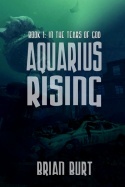
May 29, 2015
String-Music of the Spheres

Okay, I'll admit it - quantum theory has always bugged (and baffled) me. It's proven to be extremely powerful for physicists, it's borne up well experimentally, it is (as I understand it, not being qualified to judge) mathematically elegant... but it doesn't jibe with most of our daily experiences in the real world. Wave-particle duality, the mysterious "role of the observer" in collapsing probabilities to a discrete state, Heisenberg's poor, doomed cat forever trapped in limbo between life and death. Even Einstein considered it "spooky." From what I've read, many particle physicists get flustered if asked to interpret "what it means" in the macroscopic world we all inhabit and simply dismiss such attempts as unnecessary distractions from applying a useful theory, hopelessly speculative side-trips into the realm of metaphysics.
For SF writers and readers, though, those side-trips are often the point, journeys of discovery where mind-boggling insights can be glimpsed. And author Rob Bryanton boldly explores this uncharted territory of higher dimensions beyond our perception, where vibrating strings may just generate our reality (and many other realities), in his book Imagining the Tenth Dimension: A New Way of Thinking about Time and Space.
Bryanton, by his own admission, is no scientist or quantum theoretician. He's a composer who creates music for television shows and films primarily... which may make him uniquely qualified, on some level, to grasp the nuances of a "super-string symphony" that might explain everything. He has read extensively on the subject (praising the work of popular science writers like Michio Kaku, Brian Greene, and Lisa Randall) but brings a layman's humble, common-sense perspective to this conversation. He acknowledges that his theory of reality bears little resemblance to what would be taught in a formal physics or cosmology class, but he proposes an interpretation of a ten-dimensional multiverse that is accessible, rational, and quite intriguing. And it is, in some fundamental ways, compatible with (or at least not at odds with) established scientific thinking on the subjects of string theory, quantum mechanics, dark matter and energy, and other phenomena that mark the boundaries between what we do and don't know. You can get a "Cliffs Notes" summary of his theory via the brief video linked below.
At one point in the book, Bryanton writes the following:
Here's a completely shameless and self-serving proposition: "Imagining the Tenth Dimension" should be required reading for any writers planning on creating a story about time travel. The basic concepts from Chapter One give a framework for how time can be manipulated, or moved within, and there are many ideas within the chapters that follow which could be excellent jumping off points for new fiction.
As someone who's written short stories revolving around time travel, I'd agree with his assessment. There are valuable insights to be gained from Bryanton's imaginings, whether you write speculative fiction or just enjoy challenging the limits of your (and our species') current understanding of reality. If you're ready for your mind to expand into higher dimensions, where you can't help but view the world around you in a different way, give this book a try!
#SFWApro
April 19, 2015
Science Faction
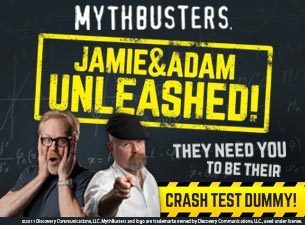
My family and I just had the distinct pleasure of getting to see the Mythbusters dynamic duo, "Jamie and Adam Unleashed," live on stage during their current tour. We love the television show - amazingly, all three of my boys (ages 9 to 18) think it's extremely cool. It's one of those rare programs that gives reality TV a good name. As we watched Jamie and Adam defy (okay, clarify) physics in front of a live audience (using eager volunteers from the crowd as victims... uh, test subjects), it occurred to me that these guys are a lot like SF writers.
Bear with me. Jamie and Adam are definitely showmen. They use science and technology in creative, unconventional ways to tell a compelling story with every episode, every mind-boggling Hollywood stunt they analyze or urban legend they debunk. They combine fact and fiction in ways that entertain their audience immensely while also making them think.
Booyah. They may not be SF writers (or maybe they are - that's what pseudonyms are for), but they're certainly simpatico. Heck, for the climax of their stage show, they put one of my middle son's buddies in a suit of armor and obliterated him with a paintball cannon that would have intimidated a squad of Navy SEALs. Now that's what I call dramatic tension!
So the next time I'm happily watching these "masters of the explosive arts" launch a hot water heater into near Earth orbit or attempt to swim in syrup to see if they go faster or slower than in boring old H2O, I'll be taking notes. I'm sure I can learn a great deal about storytelling, the scientific method, and showmanship from these two crazy, creative uber-nerds.
Who says that mad scientists have to be the bad guys?
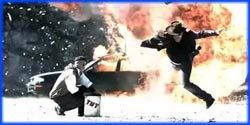
#SFWApro
March 15, 2015
Every Day's a Cold Day in Hell...

A friend at work just turned me onto the Night's Dawn series of hard-SF novels written by Peter F. Hamilton. It's an epic saga in the grand tradition of works like Frank Herbert's classic Dune Chronicles, with a sweep and scope that amazes me. The paperback editions which my buddy is loaning me, one book at a time (because I'd likely herniate myself by trying to carry them all home at once), actually constitute parts of a "trilogy of pairs": each story of the trio would be around 1200 pages as a single book, so they've been split into Part 1 and Part 2. The series kicks off with The Reality Dysfunction 1: Emergence and The Reality Dysfunction 2: Expansion. I'm now in the midst of Part 1 of the second installment of the broader trilogy, The Neutronium Alchemist 1: Consolidation.
In some ways, this series reminds me of the "Golden Age" works of writers like Asimov, Clark, and Heinlein. There are a lot of big ideas woven into this fictional world, and Hamilton clearly knows his science. But what fascinates me about the Night's Dawn universe is its unique blend of physics and metaphysics, science and religion... a juxtaposition that's extremely difficult to pull off.
<spoiler>SPOILER ALERT:As the series kicks off, a member of an incorporeal alien species that specializes in observing other civilizations blunders upon a murder - actually, a Satanic rite - on a remote human colony planet. When this alien observes the spirit of the victim retreating to an alternate dimension, it attempts to follow. In the process, it inadvertently creates a rift that allows the tormented souls from this other dimension to escape back into the universe from which they came, unleashing drastic consequences for the "normal" humans who blunder into the path of the escapees.</spoiler>
This is where Hamilton interweaves elements not normally combined in hard SF. The entities from this other universe turn out to be the lost souls of dead humans, trapped for centuries (or millennia) in a place where they float, insensate, among other damned spirits. They have been driven to the brink of insanity (or beyond) by their desperate hunger for sensation, for life; they can observe the events of the "normal" human universe from which they came, but only dimly, through a translucent veil that leaves them more and more frantic to taste the lives that hover forever beyond their reach.
The spirits of the dead imprisoned in this alternate dimension are crippled by the constant, unquenchable temptation of the human world they can voyeuristically observe but never touch, never truly experience. Some were irreparably damaged before their deaths and exile to this cold, dark void; others still cling to slivers of their old morality and sense of duty. But all are so haunted by their traumatic memories of incarceration in this other realm that they are willing to do anything - anything - to avoid going back. And the only way to avoid that dismal fate is to hijack the bodies of the humans who still live, to possess and rape the souls of the innocent. By occupying flesh-and-blood humans, but still retaining their connection to the other dimension, they're able to funnel immense energies and reshape the reality of the material world to which they've returned.
That's the magic, the mystery, and the moral challenge of these novels. Few SF series can combine hard science and psychology in such a compelling way. If your psyche were trapped in solitary confinement (or in a sensory deprivation chamber as vast as an entire universe) for centuries or longer, how much of your sanity would survive? And, if you were offered a chance to live again at the expense of other living humans, by stealing their bodies and their futures, what atrocities would you willingly commit to maintain control?
I'm less than half way through this series but I'm hooked. I can't way to see how events play out. Peter Hamilton shows us, in these novels, that true hell is not fire and brimstone; instead, it's a dark, frigid, insensate place where tortured spirits yearn for one more smell, taste, touch of the world they've lost.
In this twisted reversal of the Rapture where the dead repossess our universe six centuries from now, technology has advanced, but the human condition is much the same. People are just as capable of cruelty and depravity as ever. Every day is a cold day in Hell. No wonder the resurgent spirits of the damned prefer to wield white fire and burn the vulnerable worlds of humanity to ashes before they'll allow themselves to be cast into the icy void again.
#SFWApro
February 1, 2015
The Sage of Cyberspace
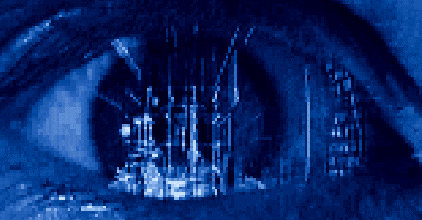
William Gibson is one of the most celebrated science fiction authors of the last four decades, and deservedly so. He coined the term "cyberspace," is widely considered the father of cyberpunk, and has been called the "noir prophet" of that sub-genre. I still remember the first time I read Neuromancer - it rocked my world view and altered my perception of the (blurring) borders separating the "real" and virtual universes between which we constantly navigate these days. As somebody who's worked in information technology for decades, I find his insights particularly relevant, prescient, and more than a bit chilling.
I just finished reading Zero History, another brilliant novel that I'd highly recommend. It reinforced for me just how wide Gibson's range really is. This novel is part of the Blue Ant trilogy, Gibson's most recent series. It's set in contemporary (or near-future) times; it's edgy and pushes the technological boundaries, as you'd expect, but has a completely different tone, pace, and theme than the Sprawl trilogy that began with Neuromancer. The Blue Ant characters are quirky, complex, and extremely memorable, and the prose flows as smoothly as a cool stream (although maybe one that channels mercury instead of mundane H2O).
The Sprawl novels, by contrast, go beyond edgy into the territory of razor wire: they're dense, strange, and explode with exotic energies. If the Blue Ant books flow like water, the Sprawl books bubble and boil and give off feverish heat like lava. Anyone who's seen the Matrix films will recognize the signs that Gibson's Sprawl trilogy inspired many aspects of what unfolded on the screen.
The Bridge trilogy, which started with Virtual Light, was published in between Sprawl and Blue Ant. These novels have yet a different style and rhythm than those in the other two series. They're urban noir stories told with wry, sardonic humor and a sociological focus, rich with dark observations about where "runaway capitalism" may be taking us as a society.
All of these series are clever, thought-provoking, woven into a fabric of ideas that intermingles threads in ways that challenge any reader. They're also different (and nuanced) enough to offer something to appeal to any taste.
As a guy who pays the bills by working in "cyber-security" these days, I'm amazed by William Gibson's foresight: he envisioned the rise of the internet, as well as the ways this new digital frontier would be exploited by criminals, governments, corporations, activists, and even terrorists. SF writers aren't oracles, but sometimes they see future trends with remarkable clarity. Gibson may not have a crystal ball, but he has a crystal-clear inner eye and the ability to translate his imagination into unforgettable stories.
If you haven't yet had the pleasure, I strongly recommend immersing yourself in one or more of William Gibson's worlds. The tough part is deciding where to start!
#SFWApro
Work in Progress
- Brian Burt's profile
- 51 followers










